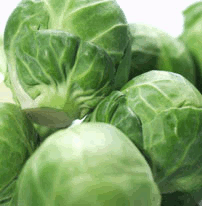Can you please recommend foods that are good to decrease constipation?
If you are experiencing chronic bouts of constipation, you should definitely consult with a healthcare practitioner who can help you to evaluate the underlying causes. Your food may or may not be a primary factor in your constipation, and it is very important to determine exactly what those primary factors are.
Regarding a nutritional approach to promoting "regularity," we think that there are three main aspects of a dietary strategy that should be considered (assuming that the constipation is primarily the result of diet and not a medical condition): fiber, water, and a relaxed approach to eating, including more time chewing and enjoying the qualities of your food.
Dietary fiber is a vital nutrient important for helping to keep us "regular." Fruits, vegetables, whole grains, legumes/beans, nuts and seeds are great sources of fiber. In its most recent 2005 public health recommendations for fiber (published as the Dietary Reference Intakes for Energy, Carbohydrate, Fiber, Fat, Fatty Acids, Cholesterol, Protein, and Amino Acids (Macronutrients), National Academies Press, 2005), the National Academy of Sciences established an Adequate Intake (AI) level of 38 grams of total daily fiber for males 19+ years of age and 25 grams for women in this same age range. It also noted that individuals in this age range in the United States only get about half this much fiber each day. Therefore, ensuring that you are consuming adequate amounts of fiber is a great step to take for helping to be "regular." You can find a list of some of the most fiber-rich foods in the chart at the bottom of our article on fiber.
Water helps to regulate digestion and can also contribute to keeping us "regular." The general daily recommendation for water intake is six to eight 8-ounce glasses of water. The majority of your water intake should be consumed between meals rather than during mealtimes.
Thorough chewing as well as being in a relaxed state while you are eating can contribute to better digestion. This can also lead to promoting intestinal regularity.
For more information on this topic, please see:






